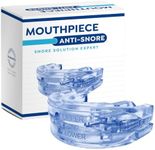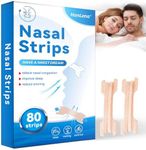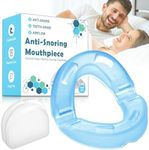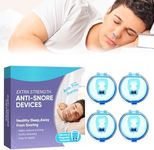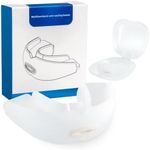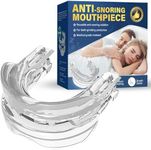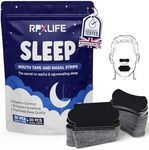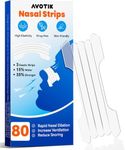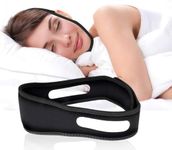Buying Guide for the Best Anti Snore Devices
Choosing the right anti-snore device can significantly improve your sleep quality and overall health. It's important to understand the different types of devices available and how they work to address the root causes of snoring. By considering key specifications, you can find a device that best fits your needs and preferences.Type of DeviceAnti-snore devices come in various types, including mouthpieces, nasal dilators, chin straps, and positional therapy devices. Each type works differently to reduce snoring. Mouthpieces, for example, reposition the jaw or tongue to keep the airway open, while nasal dilators expand the nostrils to improve airflow. Chin straps support the jaw to prevent mouth breathing, and positional therapy devices encourage sleeping in positions that reduce snoring. Understanding the mechanism of each type can help you choose one that addresses your specific snoring issue.
Comfort and FitComfort and fit are crucial for the effectiveness of an anti-snore device. If a device is uncomfortable, you're less likely to use it consistently. Mouthpieces should be adjustable to fit your mouth size and shape, while nasal dilators should be soft and flexible to avoid irritation. Chin straps need to be adjustable and made from breathable materials. Positional therapy devices should be easy to use and not interfere with your sleep. Consider your personal comfort preferences and any sensitivities you may have when choosing a device.
MaterialThe material of an anti-snore device can affect both comfort and durability. Look for devices made from medical-grade materials that are hypoallergenic and free from harmful chemicals. Silicone and soft plastics are commonly used for mouthpieces and nasal dilators, while chin straps may be made from neoprene or other breathable fabrics. Durable materials ensure the device lasts longer and maintains its effectiveness over time. If you have allergies or skin sensitivities, opt for materials that are specifically designed to be gentle on the skin.
Ease of CleaningRegular cleaning of your anti-snore device is essential for hygiene and longevity. Some devices are easier to clean than others. Mouthpieces and nasal dilators should be easy to rinse and may come with cleaning instructions or kits. Chin straps can often be machine-washed, while positional therapy devices may have removable covers that can be washed. Consider how much time and effort you're willing to spend on maintenance when choosing a device. A device that is easy to clean will be more convenient and encourage regular use.
AdjustabilityAdjustability is important for ensuring the device works effectively for your specific needs. Mouthpieces should allow for adjustments in jaw positioning or tongue placement. Nasal dilators should come in different sizes or be adjustable to fit your nostrils comfortably. Chin straps should have adjustable straps to fit securely without being too tight. Positional therapy devices may offer different settings or configurations to suit your sleeping habits. The ability to adjust the device ensures a better fit and more effective snoring reduction.
EffectivenessThe effectiveness of an anti-snore device can vary based on the cause of your snoring. Some devices are designed to address specific issues, such as mouth breathing or nasal congestion, while others may be more versatile. Look for devices that have been clinically tested or have positive user reviews indicating their success in reducing snoring. Understanding the root cause of your snoring can help you choose a device that is more likely to be effective for you. If you're unsure, consulting with a healthcare professional can provide guidance.




